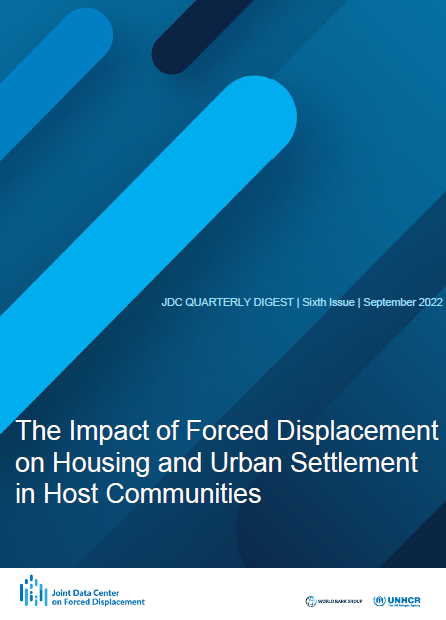The Impact of Forced Displacement on Housing and Urban Settlement in Host Communities

The document titled “The Impact of Forced Displacement on Housing and Urban Settlement in Host Communities” examines how forced displacement affects housing conditions and urban settlements in communities that host displaced populations. It provides insights into the challenges faced by both displaced individuals and host communities, emphasizing the need for effective policy responses to mitigate negative impacts and promote integration.
Background
Forced displacement, often due to conflict, persecution, or natural disasters, has become a significant global issue. The document highlights that millions of people are forcibly displaced each year, leading to increased pressure on host communities, particularly in low- and middle-income countries. These communities often struggle to accommodate the influx of displaced individuals, which can exacerbate existing housing shortages and urban challenges.
Key Findings
1. Housing Shortages
The assessment reveals that forced displacement frequently leads to acute housing shortages in host communities. As displaced individuals arrive, they compete for limited housing resources, driving up rents and making it more difficult for local residents to find affordable accommodation. In many cases, this results in overcrowding and the proliferation of informal settlements, where living conditions are often inadequate.
2. Impact on Urban Infrastructure
The influx of displaced populations puts additional strain on urban infrastructure and services. Host communities may experience increased demand for water, sanitation, healthcare, and education services, which can overwhelm existing systems. This situation often leads to deteriorating living conditions for both displaced individuals and local residents.
3. Economic Pressures
The document notes that the economic impact of forced displacement can be mixed. While some host communities may benefit from increased labor supply and demand for goods and services, others face economic pressures due to rising costs and competition for jobs. Displaced individuals often struggle to find employment that matches their skills and qualifications, leading to underemployment or reliance on informal work.
4. Social Tensions
The arrival of displaced populations can lead to social tensions within host communities. Pre-existing inequalities may be exacerbated as resources become scarcer, leading to resentment between local residents and newcomers. Cultural differences can also create friction, making integration more challenging.
Policy Recommendations
To address the challenges posed by forced displacement on housing and urban settlements, the document offers several key recommendations:
1. Enhancing Housing Supply
Governments should prioritize increasing the supply of affordable housing in areas experiencing high levels of displacement. This can be achieved through public investment in housing projects, partnerships with private developers, and support for community-led initiatives that create affordable rental options.
2. Strengthening Urban Planning
Effective urban planning is essential for managing the impacts of forced displacement. Policymakers should adopt inclusive planning processes that consider the needs of both displaced populations and host communities. This includes assessing infrastructure capacity and ensuring that services are adequately funded and expanded.
3. Promoting Economic Opportunities
Creating economic opportunities for both displaced individuals and local residents is crucial for fostering social cohesion. Programs that facilitate job training, access to microfinance, and support for small businesses can help integrate displaced populations into local economies while benefiting host communities.
4. Fostering Social Integration
Efforts should be made to promote social integration between displaced individuals and host communities. Community engagement initiatives that encourage dialogue and understanding can help reduce tensions and build relationships among diverse groups.
5. Implementing Comprehensive Support Programs
Governments should develop comprehensive support programs that address the specific needs of both displaced populations and host communities. This includes providing legal assistance, access to healthcare, education services, and social protection measures to enhance resilience among vulnerable groups.
Conclusion
In summary, “The Impact of Forced Displacement on Housing and Urban Settlement in Host Communities” underscores the complex challenges posed by forced displacement on housing markets and urban dynamics. By recognizing the interconnectedness of displaced populations and host communities, policymakers can develop more effective strategies that promote equitable access to housing while fostering social cohesion.The document calls for a proactive approach that prioritizes affordable housing development, strengthens urban infrastructure, promotes economic opportunities, and fosters social integration. Addressing these issues is essential not only for improving living conditions but also for building resilient communities capable of adapting to ongoing changes brought about by forced displacement.

Further reading: Evaluation of the thermal performance of the envelope of an innovative construction system for low cost buildings
Impacts of forced displacement on host communities – World – ReliefWeb reliefweb
Publication: The Impact of Forced Displacement on Host Communities openknowledge.worldbank
